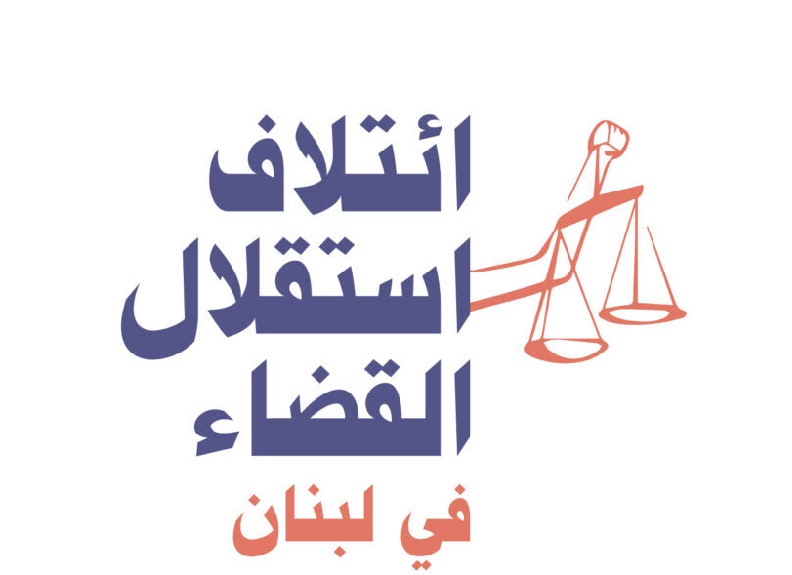Independence of the Judiciary Coalition Statement on the Ruling by the Mixed Bench in the Beirut Court of Appeal: No to Demonizing Freedom

Since the battle for freedoms began in response to the Beirut Bar Association council’s decision on 3 March 2023 and Minister of Justice Henry Khoury’s circulars on April 24, those responsible for suppressing lawyers and judges’ freedoms have repeatedly sought to demonize them in order to legitimize all forms of such suppression. This discourse culminated in a seminar held by the Bar Association on May 10, which included Bar Association President Nader Gaspard, Khoury, Minister of Culture Mohammed Mortada, and a representative of Minister of Interior Bassam Mawlawi. Under the slogan “Rights and Freedom Are Existential Values Subject to Accountability” [al-Haqq wa-l-Hurriyya Qimatan Wujudiyyatan Mas’ulatan], the lectures all warned of the dangers of freedom, casting a positive light on its subjection to prior censorship. The term “anarchy” [fawda], now used to criticize anything that undermines the status quo, was widely invoked. Likewise, Gaspard frequently repeated his familiar phrase, “How many crimes are committed in the name of freedom?”.
Just two days later, the mixed bench for examining Bar Association cases in the Beirut Court of Appeal (which comprises three judges and two lawyers belonging to the Bar Association’s council and is presided over by Judge Ayman Oueidat) issued a ruling that went in the same vein, demonizing freedom in order to justify prior censorship. Making matters worse, the bench exalted the censor (the Beirut Association’s president) by assuming that he is committed to using the prior censorship power granted to him properly to protect various legitimate interests, remarkably including the interest of the very lawyer being censored. The ruling also embroils the Paris Bar Association in the violation of freedom by distortedly portraying it as applying the same restrictions. In reality, that association abolished the prior permission mechanism, pursuant to the principles of freedom of expression, in 1994 – i.e. two decades ago.
Subsequently, the Independence of the Judiciary Coalition (IJC) learned that on May 18, ten lawyers appealed the ruling before the Full Bench of the Court of Cassation on the basis of the egregious errors it contains.
Hence, the IJC would like to express the following stances:
- We consider the defense of freedom of expression, especially within the legal professions, central to our work as a coalition. It is one of the main prerequisites of the struggle to end the great anarchy represented by the erosion of the foundations of the rule of law and the spreading of impunity and jungle law. Any talk of other anarchy in order to undermine the means of curbing this anarchy betrays a desire to invert priorities, conceal the real problems behind imaginary ones, and – worst of all – restrict the tools for combating corruption and thereby preserve the system of impunity.
2. We deem that the mixed bench breached the judiciary’s fundamental duty, namely to protect rights and freedoms. Moreover, it concocted grounds that pave the way for further suppression of freedoms. This breach was especially grave because of the hybrid composition of this bench, which includes two members of the Bar Association’s council – i.e. people who had helped make the contested decision and were therefore acting as both arbiter and adversary. Hence, this decision is further evidence of the failure of many judicial bodies to defend society and should be a catalyst for expediting the adoption of the judicial independence law. In this connection, we also call for the Law Profession Regulation Law to be amended in a manner that restores the bench’s impartiality and guarantees fair trial conditions, lest such egregious biases and errors reoccur.
3. We call for the effort to confront the decisions restricting freedom to be continued through all judicial and international means available, including recourse to the United Nations’ special rapporteurs on freedom of expression, the independence of judges and lawyers, and the protection of human-rights defenders. The IJC will support any initiative in this direction.
4. We call on the Bar Association’s council to address seriously the news reported in several Lebanese papers (Al Akhbar, May 16) about Gaspard and some council members pressuring the judiciary to compel the mixed bench to dismiss the challenges, given the danger that such practices – if true – pose to public confidence in the judiciary and law profession.
5. Finally, we call on the Paris Bar Association to take a clear stance now that it has been embroiled in one of the most notable violations of freedom of expression in Lebanon.



